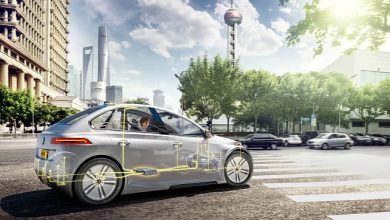The EU is imposing duties on electric vehicles from China after trade talks fail
The EU is imposing duties on electric vehicles from China after trade talks fail

News 29th October 2024
After negotiations between Beijing and Brussels failed to reach a mutually agreeable resolution to their trade dispute, the European Union began levying taxes on Chinese electric car imports.
In a larger trade dispute concerning the impact of Chinese government subsidies on European markets and Beijing’s growing exports of green technology to the bloc, electric vehicles have emerged as a key flashpoint.
“By adopting these proportionate and targeted measures after a rigorous investigation, we’re standing up for fair market practices and for the European industrial base,” European Commission Executive Vice-President Valdis Dombrovskis said.
“In parallel, we remain open to a possible alternative solution that would be effective in addressing the problems identified and (World Trade Organization)-compatible,” he added. The duties would stay in force for five years, unless an amicable solution is found.
By unjustly undercutting EU industry prices, sales of Chinese-built electric cars increased from 3.9% of the EV market in 2020 to 25% by September 2023, according to the commission, which handles trade disputes on behalf of the 27 EU member states.
Cars manufactured by BYD, Geely, and China’s state-owned SAIC will be subject to charges of 17%, 18.8%, and 35.3%, respectively. While SAIC owns Britain’s MG, one of Europe’s top EV brands, Geely controls brands like Polestar and Sweden’s Volvo.
Duties of 20.7% would apply to other EV producers in China, including Western firms like Volkswagen and BMW. For Tesla, the commission’s “individually calculated” rate is 7.8%.
Germany, which has the largest economy in Europe and is home to several significant automakers, has opposed the EU’s retaliatory taxes.
The duties are “a setback for free global trade and so for prosperity, the preservation of jobs, and Europe’s growth,” according to the chairman of the German auto industry association, VDA. According to Hildegard Müller, the action raises the possibility of a protracted trade dispute.
“The industry is not naive in dealing with China, but the challenges must be resolved in dialogue,” Müller said in a statement.
The measures were published in the bloc’s legal Official Journal late Tuesday, meaning duties enter into force as of midnight, said EU spokeswoman Arianna Podesta.
According to the commission, China used production-chain subsidies to increase its market dominance in the EU. These included tax incentives and simple financing from state-controlled banks, low-cost lithium and battery supply from state-owned companies, and inexpensive land for manufacturing supplied by local governments.
The EU is worried that Chinese automobiles would eventually jeopardize the EU’s capacity to develop its own green technology to tackle climate change, given the country’s market share’s explosive growth. Unions and business associations are also concerned that the jobs of 2.5 million people in the car sector, as well as 10.3 million more whose jobs are indirectly dependent on the production of EVs, may be in danger.
SOURCE: Associated Press




